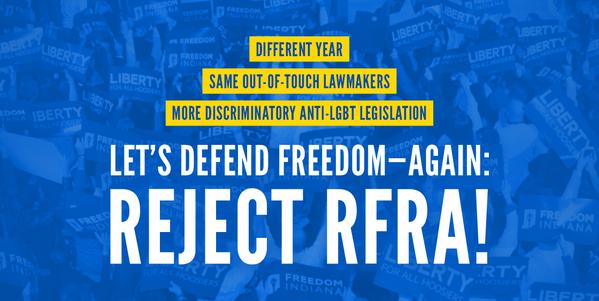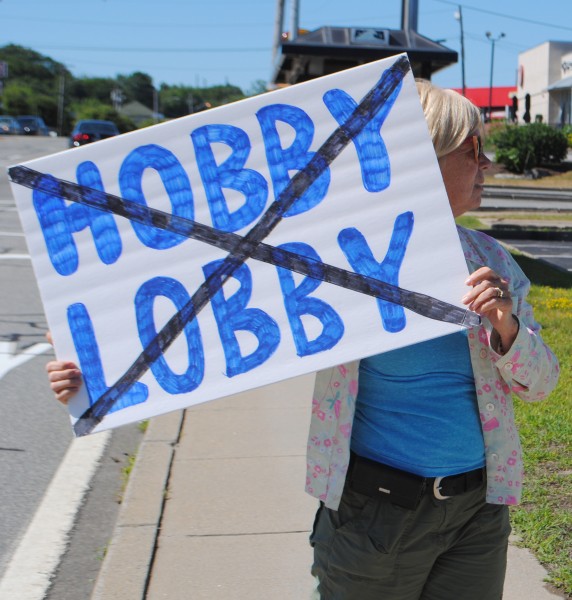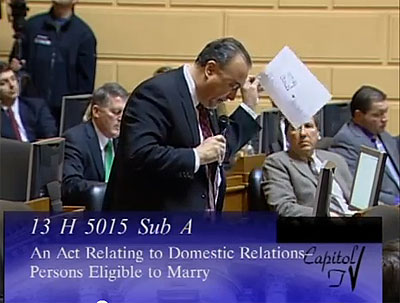
UPDATE: Todd Anthony Bianco, Coordinator of the RI Energy Facility Siting Board, said the following in an email:
“A site visit of the Invenergy property will not violate the Energy Facility Siting Board Rule regarding ex parte communication. All parties were given notice through counsel and have the opportunity to attend. The purpose of the visit is for a Board member to familiarize herself or himself with the area in order to ask informed questions through discovery and during the hearing.”
Janet Coit, director of the Department of Environmental Management (DEM), will be touring the site of Invenergy’s proposed gas and oil burning power plant today at 1pm. As one of the two members of the EFSB (Energy Facilities Siting Board) she is legally not allowed to receive “any information about the case at any time or in any manner outside the hearing process,” according to Jerry Elmer, Senior Attorney at the Conservation Law Foundation (CLF).
At issue is the Clear River Energy Center, a proposed 900-1000MW power plant to be located in Burrillville, RI. Last week, the ISO-New England Forward Capacity Auction demonstrated that there is no need for this plant to be built. We also have evidence accumulating that building this plant will ensure that RI will not meet its commitments to a clean energy future.
Not having conversations with any of the various interests concerned with the proposed power plant is important to the process. During the EFSB hearing on January 12, Coit explained that she was “firewalling” herself from any information that may come up as the DEM does its part towards certifying the plant. At the time, some activists in the room openly doubted Coit’s remarks. At a protest of Governor Gina Raimondo’s support for the plant at Goddard Park, orchestrated by members of Fighting Against Natural Gas (FANG) and Burrillville Against Spectra Expansion (BASE), Coit told BASE founder and activist Kathy Martley that she could not speak to her about the plant because of the firewall.
The CLF, according to Elmer, “does not want in any way to interfere with the usefulness of the visit,” but they were sure to remind the EFSB board of the RI Supreme Court’s holding in Arnold v. Lebel, 941 A.2d 813 (2007). This ruling “prohibits anyone from giving EFSB members any information about the case at any time or in any manner outside the hearing process,” says Elmer.
What is interesting about the site visit is that Tod Bianco, the EFSB “coordinator”, sent out the email invitations not to the entire list of parties working through the EFSB process, but only to the lawyers involved. To Elmer, “This means, almost by definition, that what is said in the woods in Burrillville to Janet [Coit] is outside the hearing process.”
Also, what exactly the law is on what can or cannot be said to Coit during this meeting is unclear. “Arguably,” says Elmer, “Janet asking, ‘Where is the route that the transmission interconnection will go,’ and the answer, ‘From that point over there to this point over here,’ is not allowed.”
An email to Coit, the Governor’s office and DEM staff has gone unanswered as of this writing, but we will be glad to update the story should any of these parties respond. A lawyer representing the CLF will also be on the site visit, to “observe what occurs and who says what to whom.”
If there are improper conversations between Invenergy officials and Director Coit, it will be a matter for the courts to decide, though as was said earlier, figuring out the law here could be tricky. In any event, saying the wrong thing outside an official hearing puts Invenergy in the position of having the entire case closed, meaning that the plant cannot be built.



 When Rhode Island Speaker Nicholas Mattiello promised to focus on “
When Rhode Island Speaker Nicholas Mattiello promised to focus on “ When the federal RFRA was
When the federal RFRA was 